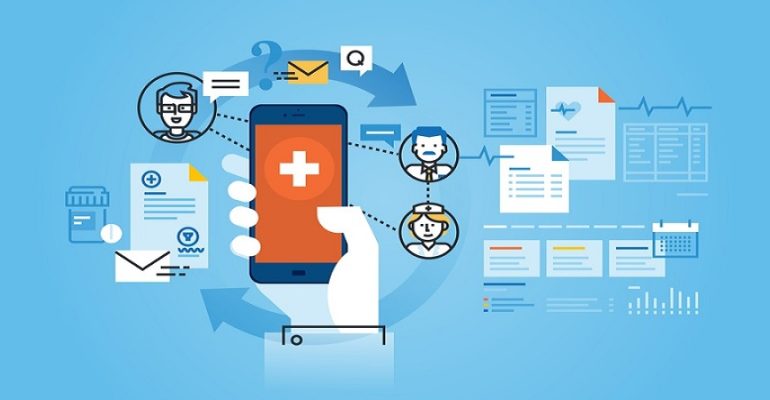
Importance of Cloud Computing in Healthcare Industry

Importance of Cloud Computing in Healthcare Industry
The benefits of cloud computing are gaining popularity day by day in Healthcare Industry due to its extraordinary features like flexibility, scalability, efficiency, security, and collaboration. Cloud computing is not a new term for Healthcare Industry but after the pandemic, the adoption of cloud technology is increasing intensively. According to a recent survey, the global market for cloud computing is expected to grow by $25.54 billion by the end of 2025.
Cloud computing has become the primary choice for Healthcare Industry because of its quality. Cloud technology reduces infrastructure costs and other operational expenses. It also increases the data security, real-time information sharing on go, 24/7 access, and strong backup.
Why is cloud computing more important in Healthcare Industry?
In the healthcare sector, daily a significant amount of data is generated. With cloud technology, patient details can be accessed remotely breaking geographical boundaries. The remote servers store and process all the data of the Healthcare Industry. Here a large amount of patient data is stored in a secured environment.
Healthcare cloud solutions provide the solutions to handle the administration, maintenance, and storage of crucial data. This will help the healthcare providers to cut down the initial costs and focus on other things like providing the best service for patients. Most healthcare providers outsource their data storage and security to HIPAA compliant cloud storage services, which provide remote and personalized patient care.
Benefits of cloud computing in the Healthcare Industry
1. Security
Healthcare data have too much confidential information, due to this malicious attackers attack the complete system resulting in data and security breaches; the cloud network provides security and ensures safety with specific tools, so when the healthcare system is accessed by suspicious attempts then it gives the alert.
The cloud service providers AWS and Azure are very careful in adhering to the privacy regulations of HIPAA and GDPR. These service providers follow different security approaches like customer-controlled encryption and network fireball for data needs.
2. Collaboration
Cloud technology improves the collaboration among the remote team. With the help of Electronic Medical Records stored in the cloud, patients no longer need to keep their medical records in hand before visiting doctor. Doctors can view the reports, exchange the reports with other specialists, and collaborate with them to know the patient’s health history and treatments given. This will save time for both patients and doctors in giving accurate treatment at right time.
3. Reduction of data storage cost
On-site storage requires a huge investment in hard drives to store data and another additional IT infrastructure to keep the data and access information anytime. Cloud-based healthcare solution providers carry out the administration and maintenance of cloud data storage services. This will reduce the initial costs and health care providers can focus on other efforts like patients well being.
4. Machine Learning and Artificial Intelligence
Due to the busy schedules of medical professionals, AI and Machine Learning are assisting in clinical decisions which are very important in providing the right treatment. Cloud computing has the potential to boost the use of AI in routine healthcare operations and help users in managing large amounts of data, which in this case brings AI and ML into their offerings.
5. Flexibility and Scalability
Cloud storage can benefit the easier upgrades and reduces the scaling costs. Cloud brings down the management costs for both patients and healthcare providers. Cloud also provides the flexibility of paying only for the required storage space the healthcare provider needs. Later on, if additional space is required, it can be increased with one click according to the requirements.
6. Telemedicine
The growth of telemedicine has accelerated the use of cloud computing in healthcare. Telemedicine apps and cloud apps improve accessibility, provide patient health insurance during treatment, and prevent and share healthcare data. Moreover, these also offer more sophisticated features like virtual drug usage analysis and getting appointments through video conferencing.
Conclusion
The healthcare market is continuously rising with the benefits of cloud computing. It allows enables worldwide remote access to information. Cloud service providers offer different sets of security tools in protecting the healthcare system details from malicious attackers. Adopting cloud technology will increase the security of confidential data and cut down the cost of resources.
Sapizon Technologies is the premier cloud service provider to all size of businesses. We help businesses in deploying secure, flexible, and scalable solutions in public, private, hybrid, and multi-cloud environments. We have a team of cloud certified experts with years of experience.
Visit us at https://sapizon.com/cloud-services/ for more details on our cloud services.